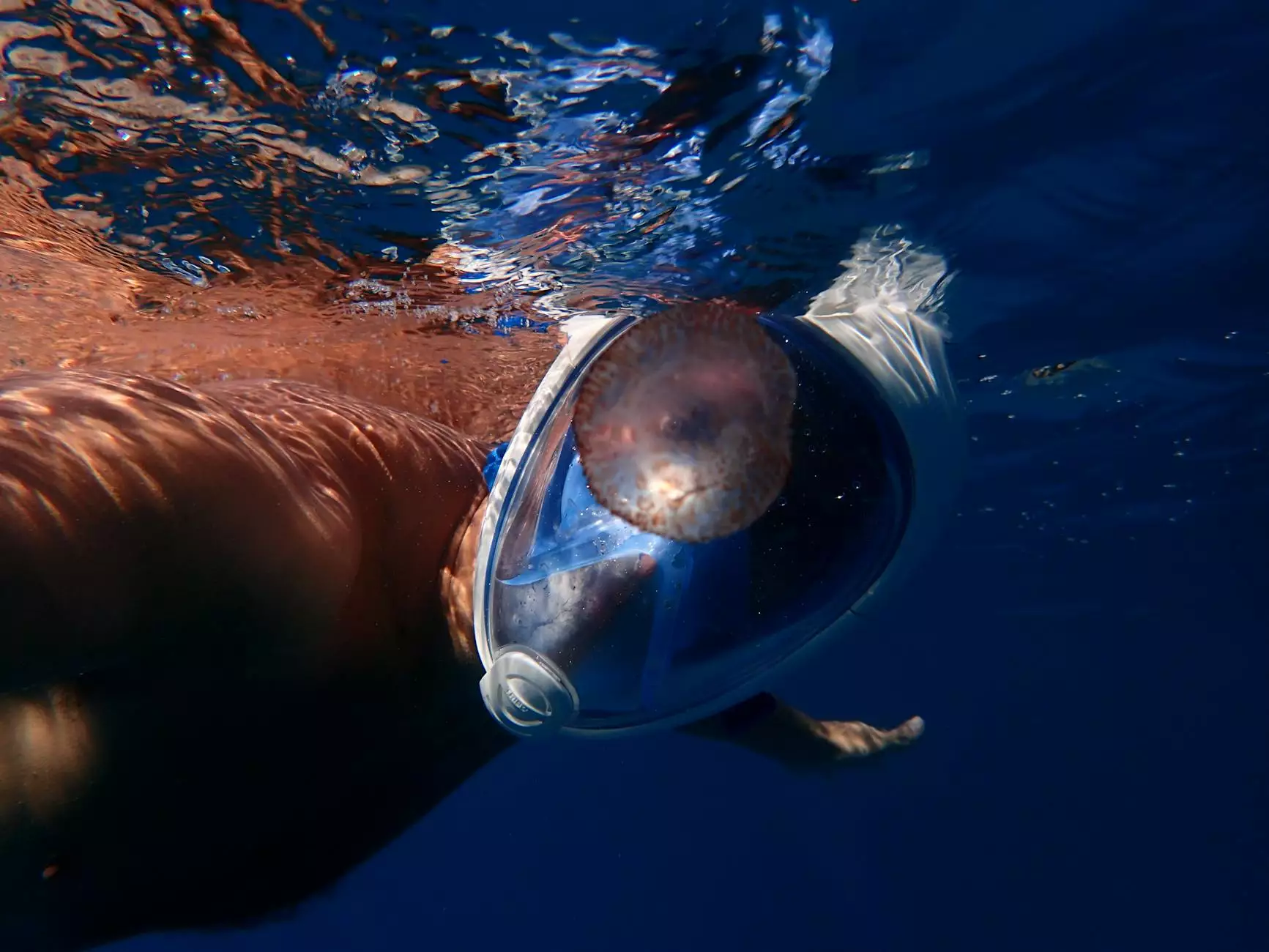Buying Dive Equipment: A Comprehensive Guide for Divers

When it comes to exploring the mesmerizing underwater world, having the right dive equipment is not just important; it's essential. For enthusiasts and professional divers alike, the dive gear you use can greatly influence your experience, safety, and enjoyment. This article will serve as your go-to resource for understanding the intricacies of buying dive equipment, ensuring you make well-informed decisions that enhance your underwater adventures.
Why Quality Dive Equipment Matters
Investing in quality dive equipment is crucial for several reasons:
- Safety: The right gear can prevent accidents and ensure you’re prepared for various underwater scenarios.
- Performance: Well-made equipment improves your performance underwater, allowing for more effortless movements and better buoyancy control.
- Comfort: High-quality dive gear provides greater comfort during dives, making longer excursions enjoyable.
- Longevity: Investing in reputable brands typically ensures durability, meaning your equipment will last for many dives.
Essential Gear for Every Diver
Whether you are a beginner or an experienced diver, certain diving essentials should be part of your arsenal.
1. Mask and Snorkel
Your mask and snorkel are crucial for underwater visibility and breathing. Look for a mask that fits snugly against your face without leaking. A high-quality snorkel will have a comfortable mouthpiece and a purge valve for easy clearing.
2. Fins
Diving fins help you swim efficiently. Consider whether you need open-heel or closed-heel fins. Open-heel fins are adjustable and best suited for use with booties, whereas closed-heel fins are generally convenient for warm water dives.
3. Wetsuit or Drysuit
The type of suit you need will depend on water temperature and your personal comfort. A wetsuit allows for insulation while a drysuit keeps you completely dry and warm in colder environments.
4. Buoyancy Control Device (BCD)
A BCD is essential for controlling your buoyancy while diving. It keeps you afloat at the surface and allows for easy adjustments underwater. Make sure to try various options to find a BCD that fits well and has the features you need.
5. Regulator and Tank
Your regulator is your lifeline underwater, and choosing the right one is critical. Look for a regulator that offers reliable performance with easy maintenance. The tank should be the appropriate size for your diving needs and should be inspected regularly to ensure safety.
How to Choose the Right Dive Equipment
Choosing the right dive equipment can be overwhelming given the variety available. Here are some steps to simplify the process:
1. Assess Your Diving Needs
Consider the type of diving you will be doing. Are you diving in warm waters or cold? Will you be engaging in technical diving or recreational diving? Having a clear understanding will aid in selecting the right gear.
2. Budget Consideration
While it may be tempting to go for the cheapest option, investing in quality is crucial. Set a budget that reflects the necessity of durable and high-performing dive equipment. Remember, buying dive equipment is an investment in your safety and enjoyment.
3. Research Reputable Brands
Some brands are known for their outstanding quality and customer service. Brands like Scubapro, Aqualung, and Mares have established a reputation for excellent gear. Take your time to read reviews and gather feedback from other divers.
4. Try Before You Buy
Whenever possible, try on equipment for size and fit. Local dive shops often allow for this and sometimes offer rental programs. Testing gear in the water can also be highly beneficial.
Where to Buy Dive Equipment
Now that you know what to look for, here are some options for purchasing your gear:
1. Local Dive Shops
Local dive shops provide the advantage of personal service, expert advice, and the opportunity to try out gear before you buy it. Many shops also offer rental gear, which is a great option for newcomers.
2. Online Retailers
Numerous online retailers offer a vast selection of dive equipment. Look for websites with solid return policies and customer reviews to ensure you're purchasing quality gear. Websites like infinitydive.com specialize in dive tours and equipment, making them a good place to start your search.
3. Dive Equipment Expos and Trade Shows
Engaging in dive expos and trade shows can provide a treasure trove of information and gear at competitive prices. This setting allows you to connect with industry experts, witness product demonstrations, and receive valuable insights into the latest technologies.
Understanding Dive Equipment Maintenance
After purchasing your gear, proper maintenance is essential to ensure durability and safety:
1. Rinse After Use
Always rinse your dive gear with fresh water after use, particularly after diving in saltwater. This helps to prevent salt buildup and corrosion.
2. Store Properly
Store your dive equipment in a cool, dry place away from direct sunlight. Avoid cramming gear into tight spaces to prevent damage.
3. Regular Inspections
Periodically inspect your dive gear for any signs of wear and tear. Regulators and tanks should be serviced regularly according to the manufacturer's recommendations.
Diving Tours and The Right Equipment
Engaging in dive tours can be an exhilarating experience. However, having the right equipment becomes even more critical during these excursions. Here’s what to keep in mind:
1. Check What the Tour Provides
Many dive tours offer rental equipment, but ensure that it's well-maintained and suits your needs. It’s also wise to inquire about the brands used and their condition.
2. Bring Your Essentials
Even if rental gear is provided, bringing your mask, snorkel, and fins is advisable, as these are usually more personalized and comfortable if you’ve already invested in them.
3. Understand the Diving Environment
Different dive sites require various types of equipment. For example, if you're going on a cold-water dive, ensure that your wetsuit or drysuit is appropriately rated for the temperatures you’ll encounter.
The Role of Dive Bars in the Diving Community
After a satisfying dive or tour, many divers enjoy congregating in dive bars. Here’s why they play an important role in the diving community:
1. Building Connections
Dive bars are great places to meet fellow divers, sharing experiences and tips about equipment and dive spots. This sense of community fosters learning and friendship.
2. Sharing Knowledge
Many dive bars are frequented by diving instructors and industry professionals, creating an excellent opportunity to gain insights into the best practices and the latest gear available on the market.
Conclusion: Making Informed Decisions When Buying Dive Equipment
In conclusion, buying dive equipment requires careful consideration and a good understanding of your needs and the environment in which you will be diving. Prioritizing safety, comfort, and quality will significantly enhance your diving experience. By researching adequately, utilizing local resources like infinitydive.com, and maintaining your equipment diligently, you're setting yourself up for countless unforgettable underwater adventures.
Dive into new experiences and equip yourself for success!
buying dive equipment


